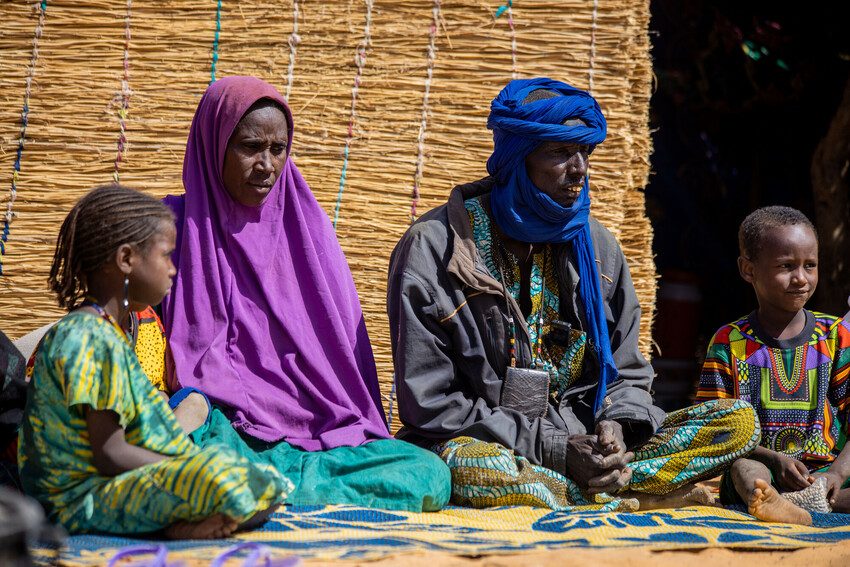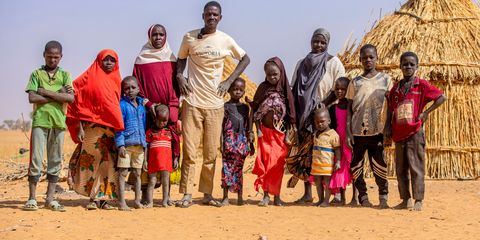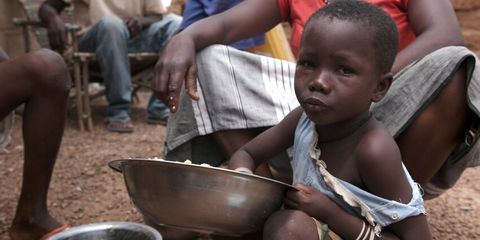International NGOs in Niger, including Plan International, are expressing deep disappointment in the lack of humanitarian exemptions made by the ECOWAS in the sanctions regime.

International NGOs in Niger are expressing deep disappointment in the lack of humanitarian exemptions made by the Economic Community of West African States (ECOWAS) in the sanctions regime in Niger. Humanitarian exemptions would alleviate the suffering of more than 4.3 million Nigeriens in urgent need of humanitarian aid, for whom the impacts are worsening by the day. The border between Benin and Niger remains closed to humanitarian aid and we call for its urgent reopening.
Following the 10 December meeting of heads of State and governments, the 15-nation strong union made no allowance for calls expressed by the humanitarian community to ensure civilians of Niger have access to life-saving aid and the most vulnerable do not suffer further.
2 million people food insecure
Mohammed Chikhaoui, humanitarian representative for international NGOs in Niger, said: “We are very concerned that our calls for humanitarian exemptions have fallen on deaf ears. It is an alarming message to the Nigerien people; pausing critical humanitarian activities while humanitarian needs are increasing. Populations must have full and unfettered access to assistance. The road with Benin is blocked for political reasons and the alternative routes via air or Burkina Faso currently used are too slow, too expensive and less effective. We must see a change now.
“Children suffer the worst; the 185,000 children under 5 suffering from moderate acute malnutrition no longer have access to treatment as it is no longer available.”
Mohammed Chikhaoui, humanitarian representative for international NGOs in Niger
“Over 2 million people were food insecure between October and December 2023, which has forced 15% of the population to move due to lack of access to food or assistance. Children suffer the worst; the 185,000 children under 5 suffering from moderate acute malnutrition no longer have access to treatment as it is no longer available, of whom 40,000 children are at risk of falling into the most severe and deadliest form of malnutrition.
“The decision by the ECOWAS Heads of State to maintain the sanctions without taking into account the crucial humanitarian imperatives has direct consequences for the people of Niger, such as the scarcity of cash and the difficulty of obtaining food supplies and seriously hampers efforts to provide vital humanitarian assistance in Niger.
Essential needs for vulnerable people
“It’s not just the border but also the financial and economic sanctions that are affecting our capacity to operate and the communities to receive services. The absence of a humanitarian exemption in the economic sanctions maintained by ECOWAS risks seriously compromising access to medical assistance, food and other essential needs for the most vulnerable populations of Niger.”
We renew our call to all parties to ensure that effective, uninterrupted access to much needed assistance reaches vulnerable persons. Legally binding humanitarian exemptions implemented by all are crucial for the provision of essential supplies, services, and economic resources necessary to carry out impartial humanitarian activities, as well as required to meet basic human needs. We are calling for the border between Benin and Niger to open to humanitarian assistance immediately.
Download the press release
English
491.36 kb
French
491.82 kb

